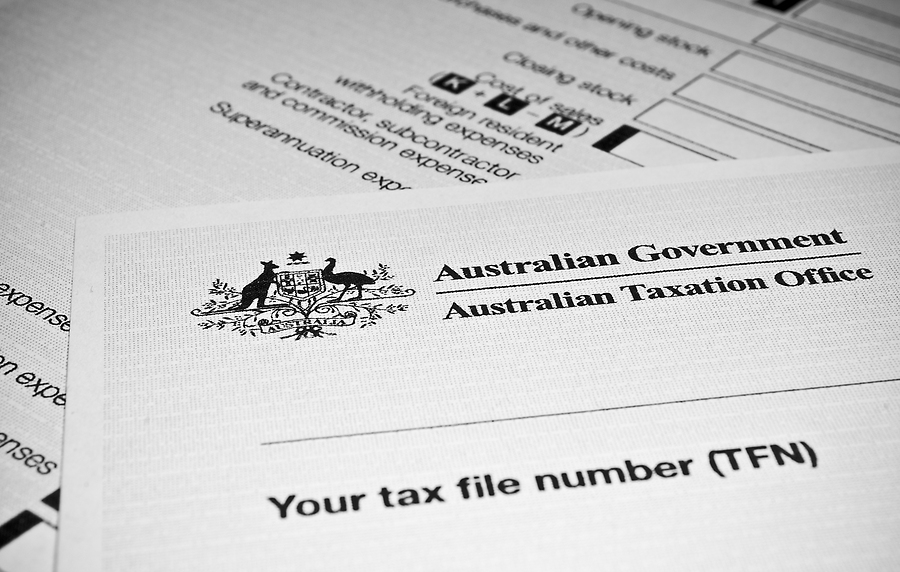End of financial year 2024: tips to avoid tax scams
March 1, 2024
As tax season draws near, there are a lot of wolves that are out to get your hard-earned money.
As a bookkeeper in Melbourne, Maximum Business Solutions knows that tax time is one of the most popular times of the year – if not the most common time of the year – where scammers work to source your personal information.

It’s a time where people are most aware of their finances, and as such, perhaps more willing and accepting to believe that they may be contacted by the “government” in regards to money, tax, and refunds.
Remaining vigilant against suspicious activities is important, particularly during this time when scam attempts are everywhere. To better protect yourself, it’s essential to be aware of the tactics commonly employed by scammers.
By staying informed and exercising caution, you can safeguard your finances and personal information from falling into the hands of fraudsters.
Today, we are going to take a look at the most popular ATO scams and what you can do to avoid them.
The “targeting innocent victims” method
You’re probably familiar with that sentiment; this method is probably one of the oldest tricks in the book!
It is used by scammers to appeal to the empathetic side of their victims. Normally done through phone calls, the unknowing victim is persuaded that the ATO (Australian Taxation Office) owes them money. This usually takes a form of a tax refund.
The victim is easily persuaded into thinking they need to make a payment, and, due to a good conscience, is scammed.
The victim passes on secure details, and the scammer can then use these details to access bank accounts. Scammers may also ask for a victim to transfer money to a third party account.
Note that the ATO will NEVER ask you to pay money in order to receive a refund, or pay money into a personal bank account.
The “fear the government” tactic
This tactic is the reverse of the first. Instead of appealing to a victim’s empathy, these scammers employ methods of intimidation.
Through a phone call, the scammer uses intimidation and fear, demanding that a victim pays up debt they owe to the government. They may even threaten arrest if the amount is not instantly paid.
This works because many people fear the government’s power and the victim is put under pressure to pay the outstanding amount while the alleged “ATO Officer” is still on the phone.
This scam method occurs year after year, and around tax time, we need to be particularly vigilant.
The phishing method
This scam is surging in popularity due to the rising use of technology as a convenience.
The government employs the strictest of security measures to ensure the information we input online for tax purposes is kept secure.
However, as technology has gotten smarter, so too have scammers.
The phishing method consists mainly of fake emails, usually involving one of the two tactics mentioned above.
Some phishing emails are designed to take you to a mirrored copy of the ATO website and will require you to update your information thus stealing your information.
Other phishing emails simply contain malware, and all that’s required for you is a click before a malicious virus is downloaded onto your computer. Your personal information is now at risk.
Fraudulent tax return
Like we mentioned above, scammers steal your identity in their own ways, and one of the common scams to use it is submitting a fraudulent tax return.
They’ll use your details to electronically file the return, often doing so early in the tax season to beat you to the punch. Once the return is filed, they sit back and wait for the refund to roll in.
By the time you realise what’s happened, it can be a mess to sort out. You’ll likely have to deal with the tax authorities, banks, and credit agencies to prove that you’re the real deal and that the tax return filed in your name was a scam.
Tips to avoid tax scams
Recognise fraud emails
Easier said than done, but you have to be on high alert when it comes to opening and acting upon emails apparently sent by the ATO.
Some giveaways can make scams easier to spot. These may include:
- Typos, grammar errors, or even salutation errors (calling you Mr instead of Mrs) are common red flags that an email may not be from who you think it is
- If the email address ends with anything other than ato.gov.au then it is most likely a fraud email. Never click on links in suspicious emails
- Asking for details through email or SMS. The ATO will never ask for sensitive details like your Tax File Number (TFN) through email.

Recognise fraud phone calls
The ATO seldom calls anyone regarding tax concerns. If they do, they will never demand payment of tax debts over the phone.
Phone scammers will commonly:
- Use threats to demand payment
- Tell you there is a warrant out for your arrest
- Demand immediate payment over the phone
- Act aggressively
- Ask you to pay in the form of gift cards or vouchers
Phone scams can be hard to fight, particularly if you are feeling threatened and forced to pay. Alarmingly, the ATO also states that scam calls can be even harder to detect as scammers are using the name of actual ATO officers.
If you are in doubt, do not worry that you may offend the person on the phone. It’s better to be safe than sorry – so call the ATO on 1800 008 540 to verify that a phone call was legit.
If an alleged agent tries to intimidate you or coerce you into paying up over the phone – hang up and call the ATO Hotline to report fraud
Monitor your credit report
Make it a habit to regularly check your credit report for any signs of suspicious activity.
Look out for unfamiliar accounts, inquiries, or other discrepancies that could indicate someone is using your identity fraudulently.
Many credit reporting agencies offer free credit reports, so take advantage of this service and stay on top of your credit health.
Report suspicious activity promptly
If you have even the slightest suspicion that you’ve been a victim of identity theft or tax fraud, don’t hesitate to take action. Report it to the authorities, such as the Australian Taxation Office (ATO), and relevant financial institutions immediately.
The sooner you act, the better chance you have of minimising the damage and stopping the fraudsters in their tracks. Don’t underestimate the importance of swift action in these situations.
Click here for more tips to stress free tax.
What do scammers do with the information they squeeze from victims?
- Access bank accounts
- Take out loans in your name
- Lodge false tax returns
- Claim benefits
- Steal your identity
(Information sourced from the ATO’s website)

Be prepared for tax time with help from a bookkeeper in Melbourne
While we can’t remove the risk of tax scammers, we can help you learn the signs to look for when it comes to scams, and the right course of action to take.
For your tax compliance needs, enlist the support of a bookkeeper in Melbourne to ensure your small business tax are up to scratch as we approach this prickly time of the year.
The end of the financial year is just around the corner! Don’t waste any more time: book a consultation with Maximum Business Solutions for bookkeeping services in Melbourne. Alternatively, give us a call today.


